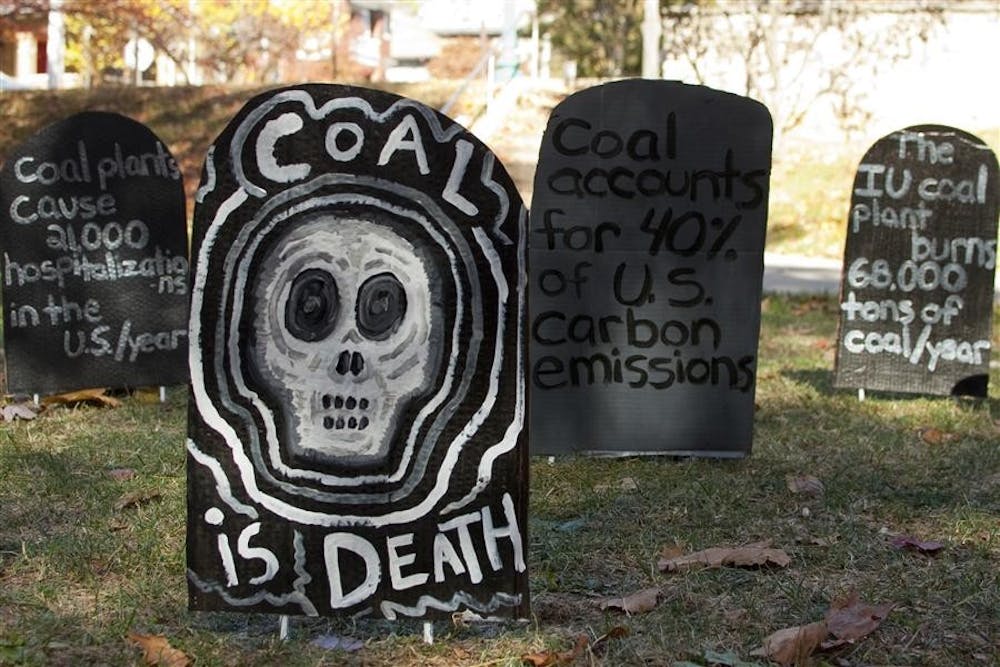One IU policy lists Dunn Meadow as a spontaneous free speech zone. Another states organizations must register to use the space 24 hours in advance. Yet another policy calls for registration 10 days prior.
“Policies that force you to register ahead of time limit students’ ability to react to events,” said senior Nico Perrino, an IDS columnist and former IU Student Association co-executive director of legal affairs. “What happened on Sept. 11? What if a group of students on Sept. 12 wanted to hold a vigil? The fact that they’d have to register 10 days in advance would inhibit something like that.”
About a year ago, Perrino and three other students formed a committee to attempt to change some of IU’s policies. At the start of this semester, he said he has seen few results.
Perrino worked as an intern in the summer of 2010 with the Foundation for Individual Rights in Education, a nonprofit organization that defends individual rights at colleges and universities across the nation.
While there, he learned that IU received a “yellow light” rating, which means the University has “at least one ambiguous policy that too easily encourages administrative abuse and arbitrary application,” according to the organization’s website.
He contacted Neil Kelty, IUSA president at the time, and asked to form a committee to look into changing some of IU’s policies, including the designation of free speech zones and a policy regarding verbal abuse in the Code of Student Rights, Responsibilities and Conduct.
The committee began researching IU’s policies and previous individual rights cases at other universities in late October 2010, working off a memo from FIRE that contained suggestions on which policies to amend.
“We spent a lot of time going over basic rights students have on campus,” Perrino said. “Once we’d gone over FIRE’s memo, we went to a faculty advisor and went over the policies.”
On March 3, Perrino sent an email to Pam Freeman, former associate dean of students who retired on June 29, and other IU representatives requesting a meeting with the Student Affairs Committee, a subset of the Bloomington Faculty Council.
“I look forward to meeting/working with your committee on these issues,” Perrino wrote in the email, “in hopes that we can soon make IU one of 14 universities identified by FIRE as places where student and faculty rights to free expression are unequivocally protected by campus policy.”
Senior Jana Kovich, former IUSA co-executive director with Perrino, met with the SAC nearly two months later, on April 22, at the SAC’s final meeting of the academic year.
“I thought of that meeting as our committee’s first introduction to the issue,” former SAC Chair Carrie Donovan said.
Donovan said she had never before heard of FIRE or many of the policy issues Kovich discussed, but she knew Perrino and Kovich were asking the right people to help make the changes.
“The SAC in recent years has spent a great amount of time revising and making recommendations to changing the code,” Donovan said. “We’re quite involved,
in fact.”
However, the SAC recommended Perrino and the other members of the IUSA committee gain support from other student organizations and IU Student Legal Services before meeting with the BFC.
“The bureaucracy they wanted us to go through was absurd,” Perrino said. “We spent five months doing that, and the fact that we’d need to get broad support makes
no sense.”
But Donovan said the SAC viewed the recommendation differently.
“It just seems like more people should be involved in part of the decision-making process,” Donovan said. “Everyone agrees this is an interesting conversation to have, and this is the right time to have it. We would just like to see more people at
the table.”
Mostly, Donovan said the SAC wanted to see responses from campus rather than an outside group.
“The truth is, it’s coming from students, but the predominant voices have been from FIRE,” she said.
A month after the SAC meeting, when action had not yet been taken, FIRE Director of Legal and Public Advocacy Will Creeley sent a letter to BFC President pro Tempore Erika Dowell explaining the organization’s mission and its concern about IU’s policies.
The organization had been used to guide Perrino and the IUSA committee up until the April meeting, and with the May 24 letter, it stated that, while it knew the next BFC meeting was not until Sept. 6, “students must not spend another academic year under unlawful speech codes.”
“It is about students’ own rights,” said Adam Kissel, FIRE vice president of programs. “Speech code litigation is very clear. Every day of delay is another violation.”
When two months passed without a response from Dowell, Kissel sent a letter to President Michael McRobbie on July 25 again asking for policy revisions and a response from the administration by Aug. 15.
Kissel received a response three days before the deadline in which McRobbie wrote that he forwarded the letter and accompanying materials to IU Vice President and General Counsel Dorothy Frapwell.
On IU’s campus, however, Perrino said the silence from the administration ignores not only the IUSA committee’s requests, but also the law.
“Why IU is pushing back against students who are trying to fight for their rights is incomprehensible,” he said.
Donovan no longer chairs the SAC, but she continues to act as a member of the committee and said she would like to see the case again brought forward.
“I suppose that with something like this, because it’s such a big issue, it can’t be owned by one committee,” she said. “That support can be garnered and put forward. It’s a story that’s still to be told, I guess.”
Committee fights to change free speech policies for students

Get stories like this in your inbox
Subscribe





